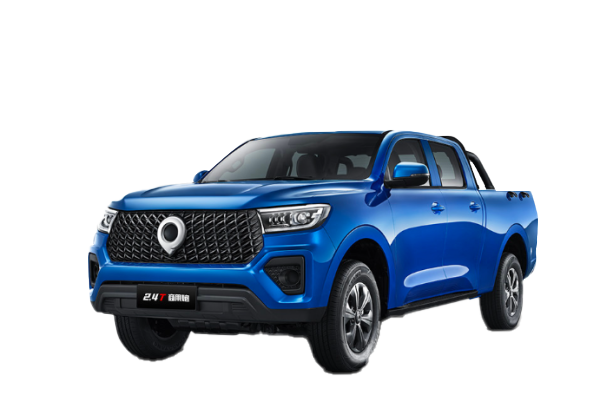How to choose to purchase a pickup truck?
Choosing a pickup truck involves balancing budget, needs, and preferences. Here’s a concise guide based on your query, addressing key considerations for purchasing a pickup truck, including diesel vs. gasoline, budget options (150,000 vs. 200,000 yuan), pickup vs. SUV, and new vs. used vehicles.
- Determine Your Budget
General Rule: Allocate 60-70% of your total budget for the vehicle purchase to leave room for modifications, insurance, taxes, and maintenance. For a 300,000 yuan budget:
Novice Drivers: Opt for a ~200,000 yuan truck. This leaves 100,000 yuan for personalization (e.g., off-road accessories) or future upgrades. Lower-end models also depreciate less, minimizing loss when reselling.
Experienced Drivers: Spend closer to 300,000 yuan for a high-spec model. Higher configurations offer better performance, safety, and resale value, reducing the need for costly modifications.
150,000 vs. 200,000 Yuan:
150,000 Yuan: Suitable for a base-model new pickup, like the Jiangling Avenue Black Knight (off-road version, ~152,800 yuan), with features like off-road tires, winches, and bumpers. Ideal for budget-conscious buyers or those prioritizing new vehicles.
200,000 Yuan: Unlocks higher trims or better-equipped domestic models with advanced features (e.g., infotainment, safety systems). Offers more comfort and capability without stretching to luxury brands. - New vs. Used
New Pickup (e.g., Jiangling Avenue Black Knight, ~152,800 yuan):
Pros: Warranty, no wear-and-tear concerns, latest features, and no risk of hidden issues (e.g., water damage, accident history). Ideal for novices or those unfamiliar with assessing used vehicles.
Cons: Higher initial cost, faster depreciation in the first 1-2 years.
Used Pickup (e.g., 2017 Toyota Tundra, ~150,000 yuan):
Pros: Access to premium models (originally ~600,000 yuan) at a lower price. Potentially better performance or brand value.
Cons: Risks include unknown maintenance history, potential for water damage, or accident repairs. In China, pickups face a 15-year scrappage rule, so a 2017 model has ~7 years left. Requires expertise to evaluate (e.g., third-party reports, paint thickness checks).
Recommendation: Unless you’re confident in assessing used vehicles (or have a trusted mechanic), a new pickup is safer for novices. Experienced buyers can consider used trucks if they prioritize performance and can verify condition. - Pickup Truck vs. SUV
Pickup Truck:
Pros: Superior cargo capacity, towing capability, and off-road potential. Ideal for work, heavy loads, or outdoor activities (e.g., camping, off-roading).
Cons: Less refined for daily urban driving, potentially higher fuel consumption, and limited rear seating comfort.
SUV:
Pros: Better for family use, urban commuting, and comfort. More refined ride, quieter cabin, and often better fuel economy for city driving.
Cons: Limited cargo bed, lower towing capacity, and less off-road capability compared to dedicated pickups.
Recommendation: Choose a pickup if you need utility (hauling, towing, off-roading) or live in rural areas. Opt for an SUV if comfort, family needs, or urban driving are priorities. - Diesel vs. Gasoline
Diesel:
Pros: Higher low-end torque, better fuel economy (10-20% better than gasoline), and ideal for heavy towing or long-distance hauls. Preferred for commercial use or off-road enthusiasts.
Cons: Higher upfront cost, noisier engine, and potentially higher maintenance costs (e.g., diesel particulate filters). Limited refueling options in some urban areas.
Gasoline:
Pros: Smoother and quieter for city driving, lower initial cost, and more accessible fuel stations. Better for shorter trips or lighter loads.
Cons: Lower torque and worse fuel economy for heavy-duty tasks.
Recommendation: Choose diesel for heavy-duty or off-road use; gasoline for urban commuting or budget constraints. - Domestic vs. Joint Venture (Brand Power vs. Configuration)
Domestic Brands (e.g., Great Wall):
Pros: Rich configurations (e.g., advanced infotainment, safety features, off-road modes) at a lower price (150,000-200,000 yuan for features rivaling 1M yuan vehicles). Improved quality control, closing the gap with global brands.
Cons: Lower brand prestige, potentially lower resale value compared to international brands.
Joint Venture Brands (e.g., Ford):
Pros: Stronger brand reputation, perceived reliability, and higher resale value. Global recognition (e.g., Ford as a “world-class” pickup).
Cons: Fewer features for the price (e.g., 20,000 yuan brand premium for similar specs). Configurations may lag behind domestic rivals.
Recommendation: Domestic pickups are ideal for value and features, especially for budget-conscious buyers.

